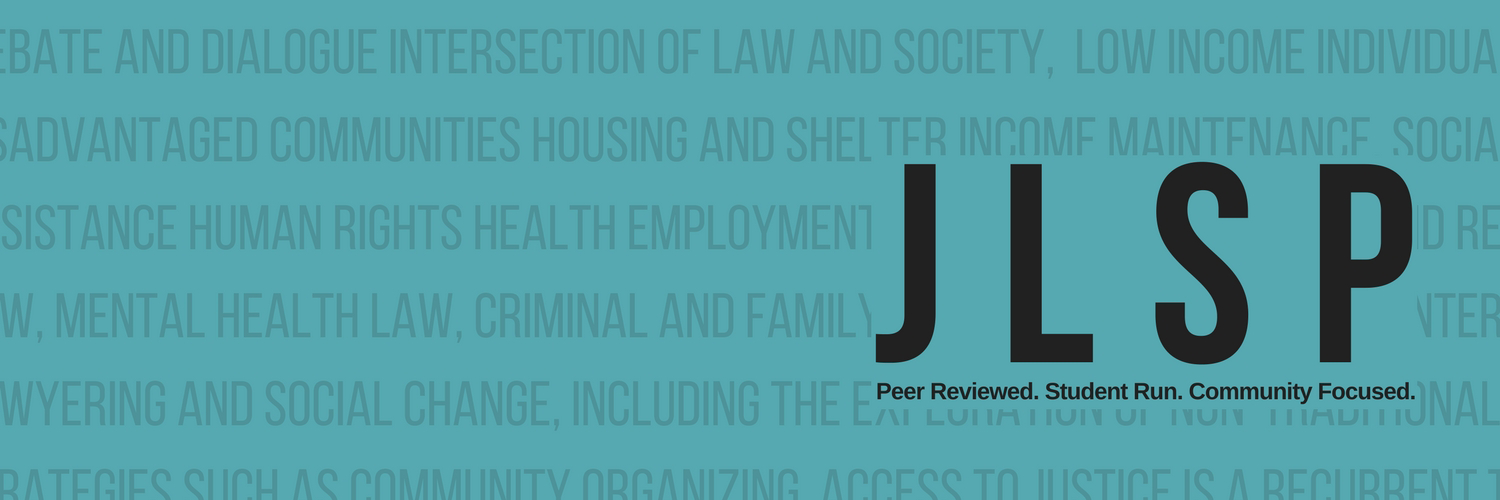
Publication Date
January 1989
Keywords
Pro bono publico legal services; Guardian & ward; Constitutional law -- Canada
Document Type
Article
English Abstract
The refusal of the New Brunswick McKenna government to continue financing civil legal aid may be a signal of what is coming in other Canadian provinces. It also questions the basis on which civil legal aid rests. The author examines the basis of civil legal aid in the context of orders of guardianship of children or elderly persons. Three bases of legal aid are examined. The obligation of the legal profession to offer free services is first examined, followed by the utilitarian philosophy applied in our democratic western societies. Finally, international documents and the Canadian Charter of Rights and Freedoms are canvassed as a basis for the right to legal aid. Through a systematic analysis of the Charter, the author shows that it is difficult to establish the right to legal aid in the abstract Following the method prescribed by recent Supreme Court of Canada decisions, it must first be established that one of the interests protected in the Charter bas been violated. Only then, could a judge decide that the person subjected to a guardianship order has a right to legal aid if a just trial could not be held without legal advice because of the nature of the procedure, the complexity of the case and the consequences to the individual if the guardianship order is granted. Once this has been established, then recourse can be had to s. 24(1) of the Charter to ask the judge to order legal aid to provide legal services, to refuse to make the guardianship order or to make a lesser order.
Citation Information
Poirier, Donald.
"Droit a l'Aide Juridique des Personnes Confrontees a une Demande de Tutelle d'Enfants ou de Personnes Agees."
Journal of Law and Social Policy
5.
(1989): 61-88.
DOI: https://doi.org/10.60082/0829-3929.1150
https://digitalcommons.osgoode.yorku.ca/jlsp/vol5/iss1/4
